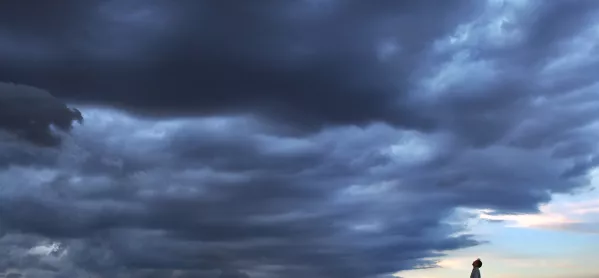Going back to school after the summer break is a bit like getting up from a sun-lounger, strolling over to the pool, and diving in.
No matter how much you might enjoy it, there’s always something brutal about that sudden change from sun-soaked laziness to cold shock.
So it is with starting a new school year - there’s no easing into it.
And this year, there are so many fears and uncertainties, a better analogy might be diving off a yacht in the middle of the ocean where there’s a strong chance that there might be sharks.
So, how do we cope with this leap back into the familiar, and yet wholly unknown, experience?
Enter The Arena
I’d like to propose an idea first articulated by US president Theodore Roosevelt way back in 1910. He made a speech in which he used the idea of The Arena.
This is a name for the imaginary space you’re in when you’re daring to be vulnerable, daring to make human connections, daring to be seen.
The Arena is not safe - it’s where we’re all most likely to get hurt, most likely to be marred by the dust and sweat and blood of everyday life.
So, why on earth would anyone get into The Arena?
The answer, of course, is that it’s also the place where we are most human and most alive. It’s the place where we’re most likely to find joy and love and belonging.
As Roosevelt put it, The Arena is for people of “great and generous emotion…who quell the storm and ride the thunder”.
Showing up and being seen
Much later on, academic Brene Brown took up this same imagery in her amazing work about courage and vulnerability. She points out that getting into The Arena is “not about winning, it’s not about losing, it’s about showing up and being seen”.
And maybe that’s one of the things that can be so daunting about teaching - being seen is such a key element of this job. It means that as soon as you’re in school, you’re in The Arena.
Brown goes on to point out that there’s an even more daring thing to do.
That is, to get into The Arena with a view to creating something new - trying out a new technique with that difficult class, making a new connection with that unknown colleague, reaching out to a reticent student.
When you do that, she says you have only one guarantee - at some point, you will get your “ass kicked”. Something will fail, backfire, fall apart because you’re daring to try.
All human life is here
So, there are few places that capture what The Arena means better than a school - all human life is there, much nearer to the surface than in most other spaces.
That’s why it can feel scary stepping back into one. And that’s why it’s so worth doing.
But there’s also one last thing worth mentioning from Professor Brown’s work. She says this: “If you’re not in The Arena also getting your ass kicked, I’m not interested in your feedback.”
Remember that next time Ofsted are visiting.
Aidan Harvey-Craig is a psychology teacher and student counsellor at an international school in Malawi. His book, 18 Wellbeing Hacks for Students: Using psychology’s secrets to survive and thrive, is available for pre-order. He tweets @psychologyhack




